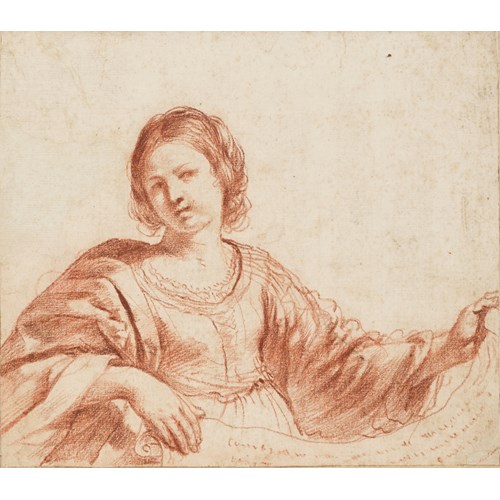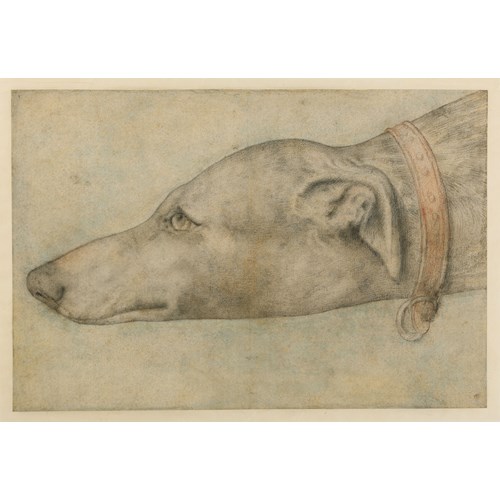Marketplace
Chinese Cabbage
Brigid Edwards almost always paints her watercolours on smooth, prepared vellum. As she has stated of her working methods, ‘I get my vellum from William Cowley Parchment and Vellum Works who also mount and stretch the skins on board to my specific dimensions. A white gesso ground is applied which smoothes the surface but inevitably because it is a natural skin there remains an irregularity of texture and pigment. In the past I have made my own boards but it is very time-consuming and expensive if things go wrong…So far there have been no problems with splitting or cracking. I think I decided to “anchor” them because I found the wavy edges rather distracting…I choose vellum rather than paper because I have always found paper too absorbent and difficult to rectify. I use ophthalmic surgical blades to remove paint from vellum where necessary.’ Like many botanical artists, Edwards works very slowly. As she has explained, ‘A large painting (and I mean volume and painted area as opposed to large but unpainted surface) can take up to twelve weeks to complete.’
The noted collector and scholar of botanical art Shirley Sherwood has recently stated that ‘Brigid Edwards has already been recognized as a painter of the most potent images which have an arresting yet subtle impact.’ As Sherwood has further noted of Edwards, ‘In 1994 she had a remarkable show at Kew Gardens Gallery where the critics compared her work with that of Rory McEwen, one of the standard-bearers of today’s renaissance in botanical painting. Like McEwen she often works on vellum, painting with a glowing, quiet brilliance, sometimes framing her pictures like medieval treasures…Brigid Edwards is undoubtedly one of today’s finest botanical artists and I am particularly attracted to her work on vellum.’
Similarly, in the catalogue of an exhibition of watercolours by Edwards at a London gallery, Ian Burton noted of her work that ‘The fine painting of the detail on the vellum is uncanny, but when these single objects are arranged and suspended in a contemplative space, they achieve their greatest power, and as a result of this creative act of attention, they have an almost religious intensity.’
The present sheet was drawn in 2016.
The noted collector and scholar of botanical art Shirley Sherwood has recently stated that ‘Brigid Edwards has already been recognized as a painter of the most potent images which have an arresting yet subtle impact.’ As Sherwood has further noted of Edwards, ‘In 1994 she had a remarkable show at Kew Gardens Gallery where the critics compared her work with that of Rory McEwen, one of the standard-bearers of today’s renaissance in botanical painting. Like McEwen she often works on vellum, painting with a glowing, quiet brilliance, sometimes framing her pictures like medieval treasures…Brigid Edwards is undoubtedly one of today’s finest botanical artists and I am particularly attracted to her work on vellum.’
Similarly, in the catalogue of an exhibition of watercolours by Edwards at a London gallery, Ian Burton noted of her work that ‘The fine painting of the detail on the vellum is uncanny, but when these single objects are arranged and suspended in a contemplative space, they achieve their greatest power, and as a result of this creative act of attention, they have an almost religious intensity.’
The present sheet was drawn in 2016.
Provenance: Thomas Gibson Fine Art, London, in 2016
Robert Kime, London
Thence by descent.
Exhibition: London, Thomas Gibson Fine Art Ltd., Brigid Edwards: New Works on Vellum, 2016, unnumbered.
More artworks from the Gallery




_T638545819346538474.jpg?width=500&height=500&mode=pad&scale=both&qlt=90&format=jpg)




